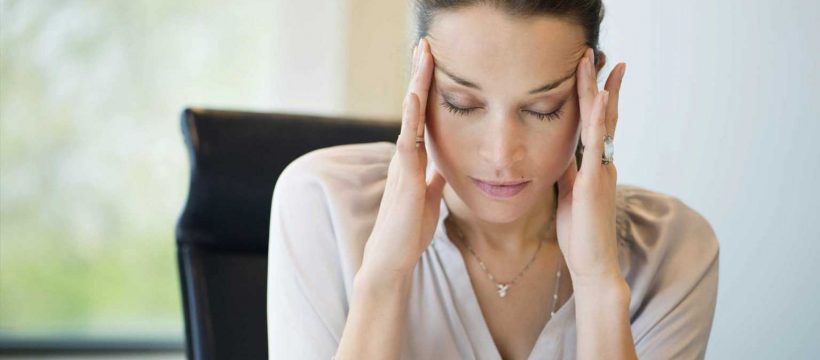NOT all of us can squeeze in a nap mid-afternoon to keep us going.
But a 10 minute hack could offer the same benefits, experts say, and will help ease sleep deprivation.
Most Brits fail to get enough shut-eye, if surveys are anything to go by.
A third of people try to catch up on their sleep debt every weekend, according to a quiz of 2,500 adults by Bedstar.
It’s no wonder so many of us struggle through the day with chronic tiredness.
If that sounds familiar, experts claim to have just the trick to give you an energy boost.
When busy people can’t find the time to nap, they may be able to replenish their energy with mindfulness exercises such as meditation, according to research from Oregon State University.
Charles Murnieks, the study’s lead author who is now an associate professor at the University of Missouri, said: “You can’t replace sleep with mindfulness exercises, but they might help compensate and provide a degree of relief.”
The researchers asked 105 entrepreneurs in America how exhausted they were, how much they slept, and if they practised mindfulness.
Most read in Health
CARE FREE 
All the Covid rule changes coming in TODAY – with huge boost for families

The major change to Covid rules from TODAY as more Plan B restrictions dropped

I'm a GP and here's 12 health questions I get asked all the time, says Dr Zoe

How the weather is HARMING your health, from heart attacks to stroke & gout
More than 40 percent of the participants reported working 50 hours per week or more, on average, and sleeping less than six hours a night.
Those who slept more, or who engaged in the highest levels of mindfulness exercises, reported lower levels of exhaustion.
The study paper, published in the Journal of Business Venturing, said: “Our model indicates a 70-minute increase in mindfulness exercises per week is equivalent to an extra 44 min of sleep per night in reducing perceived exhaustion among entrepreneurs in our sample.”
That’s the equivalent of just 10 minutes per day.
A second study of 329 workers made the same conclusions.
Only in this study, researchers made an important distinction – those who got enough sleep, but were still exhausted, were not helped with meditation.
"If you're feeling stressed and not sleeping, you can compensate with mindfulness exercises to a point," Murnieks said.
"But when you're not low on sleep, mindfulness doesn't improve those feelings of exhaustion."
Mindfulness works to modify and reduce stressors before they lead to exhaustion.
On the other hand, sleep works to replenish energy and self-control after the depletion has occurred, but before exhaustion is felt, the university explained.
Mindfulness is a type of mediation in which you sit still and focus on what you are sensing around you.
It may involve breathing exercises or body scan meditation to relax muscles.
The 4-7-8 method is a simple breathing exercise you can try:
- Begin by breathing in through your nose for the count of four.
- Hold that breath for seven seconds.
- Exhale slowly from your mouth for the count of eight seconds.
- Repeat.
Other hacks to wake you up
If you’re still looking for ways to keep your energy up while battling fatigue, sleep practitioner James Wilson and co-founder of Beingwell has some tips.
Distract yourself
He said: “If you’re at work and the tiredness creeps in, try changing the task you’re doing to shift focus.
“Taking five minutes to compose yourself and find something more stimulating can prevent your eyes from being heavy.”
Daylight
Get outside for some fresh air and natural daylight, which will encourage the body to produce chemicals in the brian that help with alertness.
James said: “A great way to increase our energy levels in the day is to expose ourselves to natural daylight.
“This increases our production of cortisol (the wake-up hormone) and will diminish the production of melatonin (a hormone that helps us sleep).
“In winter, bright natural daylight is hard to find, so consider investing in a LightBox as a way of staying alert.
“Ditch audible alarms and try a sunshine alarm clock instead, this makes our wake up less shocking and adrenaline-inducing, which is often followed by a crash that can make us feel tired all day.
“Waking with light is a calmer, more pleasant experience and sets us up for the day feeling more energetic and less prone to bouts of sleepiness.”
Exercise
Although exercise is the last thing you feel like doing when tired, short bursts of energy-boosting activity can be squeezed in during the day.
And be mindful that what you eat may send you into a lethargic state.
James said: “Try a brisk walk for ten minutes to get the body and brain going again and stave off the lethargy.
“Or if you're pushed for time, try setting an alarm on your phone to get up and stretch every hour on the hour – the increased blood flow will help you to feel more awake.
“Try to have a consistent source of fuel during the day. If we have highs created by sugar and caffeine, these will be followed by lows where we might be liable to fall asleep at our desks.
“If you’re prone to feeling sleepy after lunch, make sure the meal isn't too lethargy-inducing (such as a heavy meal).”
Source: Read Full Article

